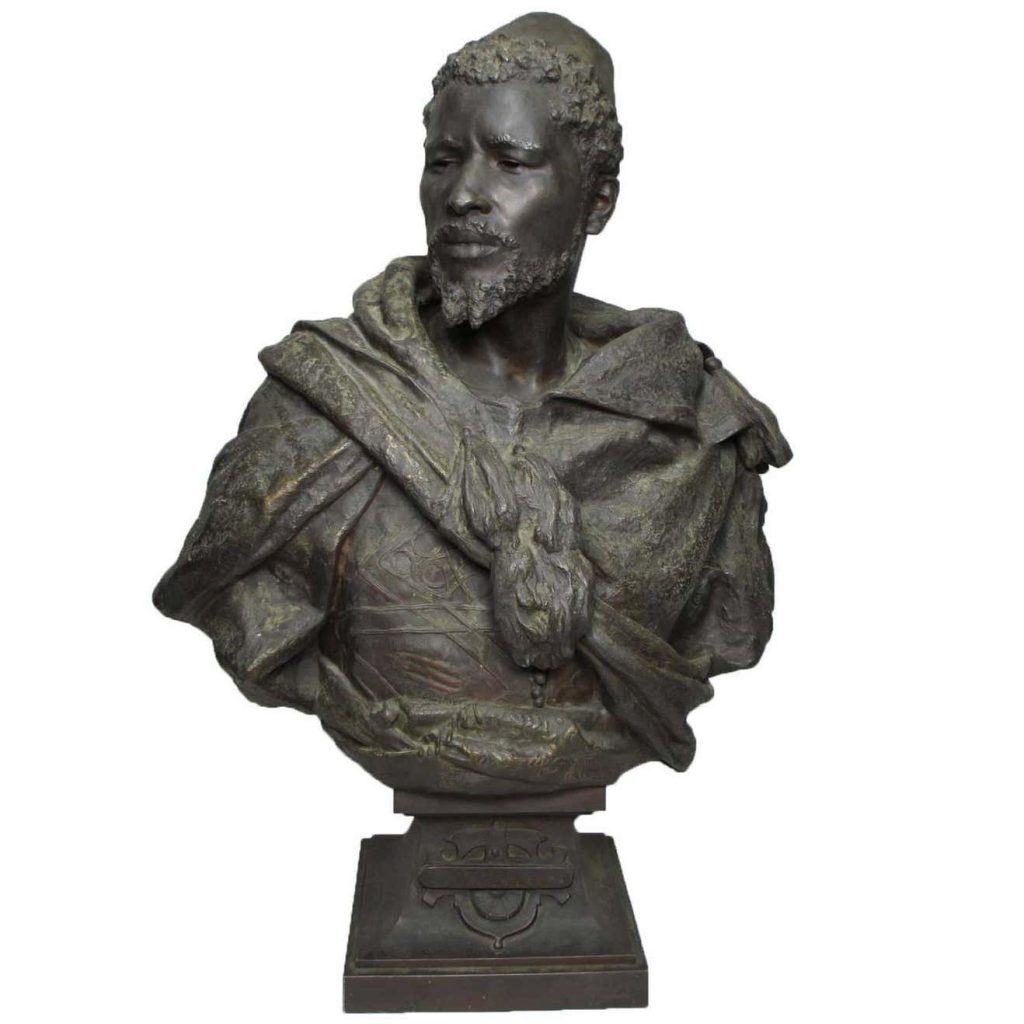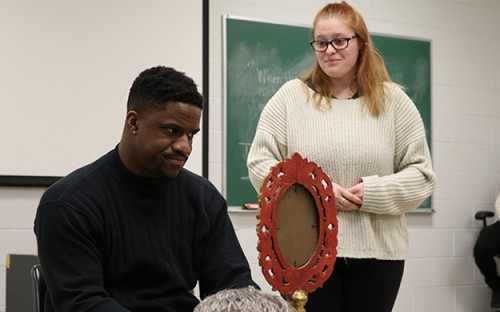Hits: 2777

by Gaston Veuvenot Leroux
First Presented at the Paris Salon, 1888
WPCNR NEWS & COMMENT by William Shakespeare. March 14, 2021 UPDATED 5 PM E.D.T.:
(Editor’s Note: The following is a continuing commentary from our pundit of the past, that exemplary and wise beyond his years, William Shakespeare, creator of 36 plays in I believe 52 years of his life, that have sustained their relevance to mankind for over 400 years since he wrote them (without a word processor or typewriter.
Never has there been a time more appropriate to brush up your Shakespeare!
At the close of the quotes, there is a feature from Ohio State News about a play their theater presented in 2020 about the first African-American to play the Othello role on the stage.
The plays are still performed today because they speak timeless truths about power, behavior, the flaws of the mind, and our capacity for destroying each other and the ones we love.
Yesterday, the bard enlightened us about the struggle for power and means for obtaining it through quotes from his gripping drama Julius Caesar.
Today the bard’s words concern the ways in which good men or “honourable” men like Brutus and Othello are time and again induced to commit acts and endorse actions that are not in the best interests of the state but ultimately to promote their own interests they are convinced are in best interests of the state, but in reality benefit themselves in the future, or at worst avenge wrong done against themselves.
To set the background of the Bard’s Othello, the title character is a heroic Moor commander of the Venetian Army who is revered by his men for his valor and leadership against the Turkish invasion of Cyprus, a Venetian colony. Being a Moor, he is hated for the color of his skin and his success.
The tale was adopted by Shakespeare from the combination of Italian stories and the Arabian Nights. Othello never lived, but there were Moors that did fight for Venice.
After the Turk fleet is destroyed by a storm, Iago, a lieutenant in the army and Rodrigo a rejected suitor of Desdemona the Venetian beauty who eloped with Othello are enraged at Othello’s success.
Iago plots to convince Othello that Desdemona is unfaithful with Cassio, Othello’s must trusted officer. When Iago’s plot is successful, Othello, his honor inflamed is jealous and makes a perplexed Desdemona heartbroken because she does not know the source of Othello’s rage.
The play ends in tragedy, but explores the insidious nature of putting one’s personal gain and hurt feelings ahead of the good of the people.
Now when you read these quotations from Othello, you may see some little relevance in the behavior of today or a lot—the call for Governor Andrew Cuomo to resign by State Senators, State Assemblypersons, Senators, Congresspersons, a who’s who in politics.
The quotes give you all you need to know about why we are seeing this today and their motivations.
Joan of Arc comes to mind.
She was burned at the stake as a heretic by the French church, after defeating the English because she would not reject her belief that God told her to take command.
Herewith the comments of Mr. Shakespeare
“O beware, my lord, of jealousy;It is the green-ey’d monster, which doth mock The meat it feeds on. That cuckold lives in bliss,Who, certain of his fate, loves not his wronger: But O, what damned minutes tells he o’erWho dotes, yet doubts, suspects, yet strongly loves!”
“Men in rage strike those that wish them best.”
“The robb’d that smiles, steals something from the thief; He robs Himself that spends a bootless grief.”
“Reputation is an idle and false imposition; oft got without merit,And lost without deserving” IAGO, Act II, scene iii
“Good name in man and woman, dear my lord, Is the immediate jewel of their souls: Who steals my purse steals trash; ‘tis something, nothing;‘twas mine, ‘tis his, and has been slave to thousands; But he that filches from me my good name Robs me of that which not enriches him, And makes me poor indeed.” – Othello
“How poor are they that have not patience! What wound did ever healBut by degrees?
“Men should be what they seem.” Othello
“And his unkindness may defeat my life, But never taint my love.” –Desdemona
“So will I turn her virtue into pitch And out of her own goodness make the net That shall enmesh them all.” –Iago
“Trifles light as air are to the jealous confirmations strong as proofs of holy writ.”
“I pray you, in your letters, When you shall these unlucky deeds relate, Speak of me as I am; nothing extenuate Nor set down aught in malice. Then must you speak Of one that loved not wisely but too well; Of one not easily jealous, but being wrought, Perplexed in the extreme…”
“To mourn a mischief that is past and gone Is the next way to draw new mischief on.”
“When devils do the worst sins, they first put on the pretence of Goodness and innocence, as I am doing now.”– Iago

IRA ALDRIGE: a portrait of the first Black Actor to ever play Othello on stage in 1833. He was a New York actor who went to London and won the role.
From Ohio State University News by OSU News Contributor Josh Friesen:
James Earl Jones. Laurence Fishburne. Chiwetel Ejiofor. Mekhi Phifer. Distinguished black thespians have portrayed one of Shakespeare’s most famed and widely depicted characters for years.
But paving the way for those acting legends nearly 200 years ago was Ira Aldridge, the first black actor to breathe life into the Othello role.
Aldridge began acting in New York City as a teenager in the early 1800s. He sailed to England when he was 17 in 1824 to pursue a career in theater, and in 1833, he took the stage as Othello. “Red Velvet” chronicles how Aldridge came into the breakthrough role and its impacts.
The Department of Theatre presented the play “Red Velvet,” a biodrama retelling the story about how Aldridge broke barriers and opened the door to fellow African American performers. The production is guest directed by actor, director and screenwriter Ted Lange and was performed Feb. 6-15, 2020 at the Drake Performance and Event Center’s Roy Bowen Theatre.
“This play shows you this extraordinary actor who copes with all of the racism of not only the English audiences, but the English actors,” Lange said. “You see the obstacles he had to overcome just to be an actor on the stage.”
Aldridge began acting in New York City as a teenager in the early 1800s. He sailed to England when he was 17 in 1824 to pursue a career in theater, and in 1833, he took the stage as Othello. “Red Velvet” chronicles how Aldridge came into the breakthrough role and its impacts.

(Ohio State News)
The play starred theatre major Sterling Wesley as Aldridge; theatre and English major Ashley Bice as Aldridge’s wife, Margaret; and communication and theatre major Betsy Huggins as Aldridge’s onstage colleague, Ellen Tree. The story documents Aldridge, an American who performed “Othello” in England, both early in his career and later toward the end of his life.
“What drew me [to the role] most was what he did for African Americans — being the first black man to play Othello,” Wesley said, adding that Othello, a black character, would typically be portrayed by white actors in blackface. “Everyone used him as a stepping stone, and he opened up careers for many African Americans to also take on this role. He was a trendsetter.”
(For the Columbus Dispatch review of Red Velvet go to
